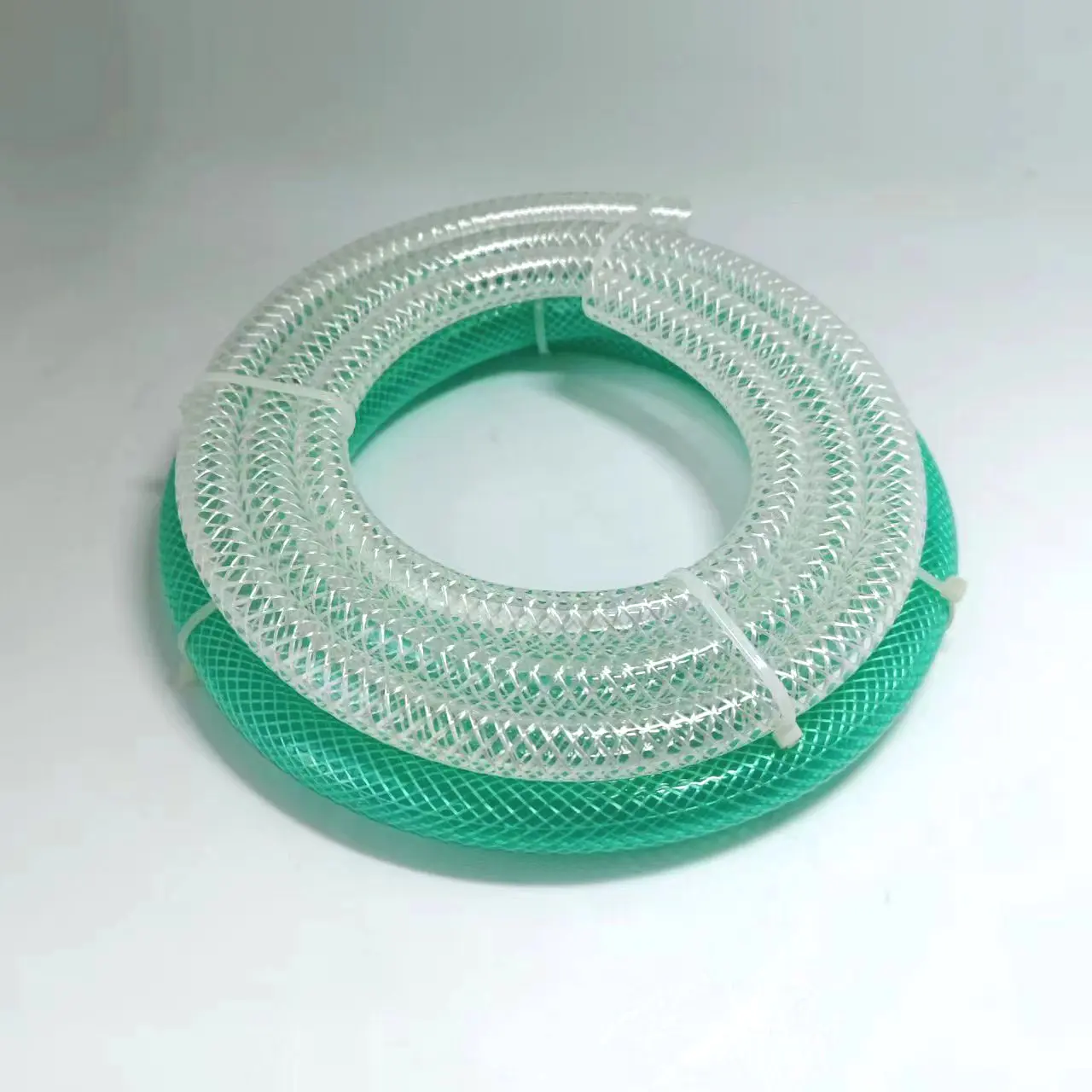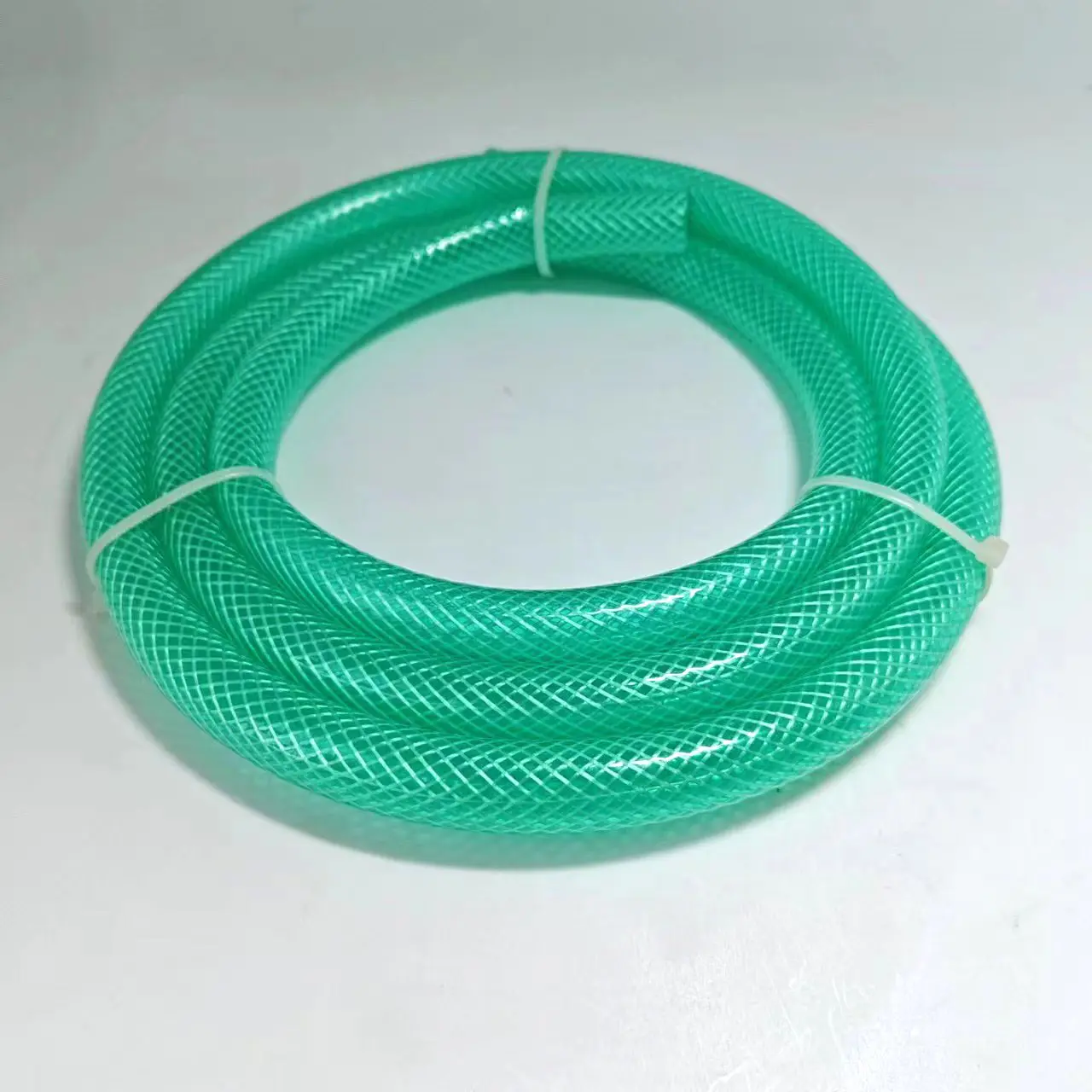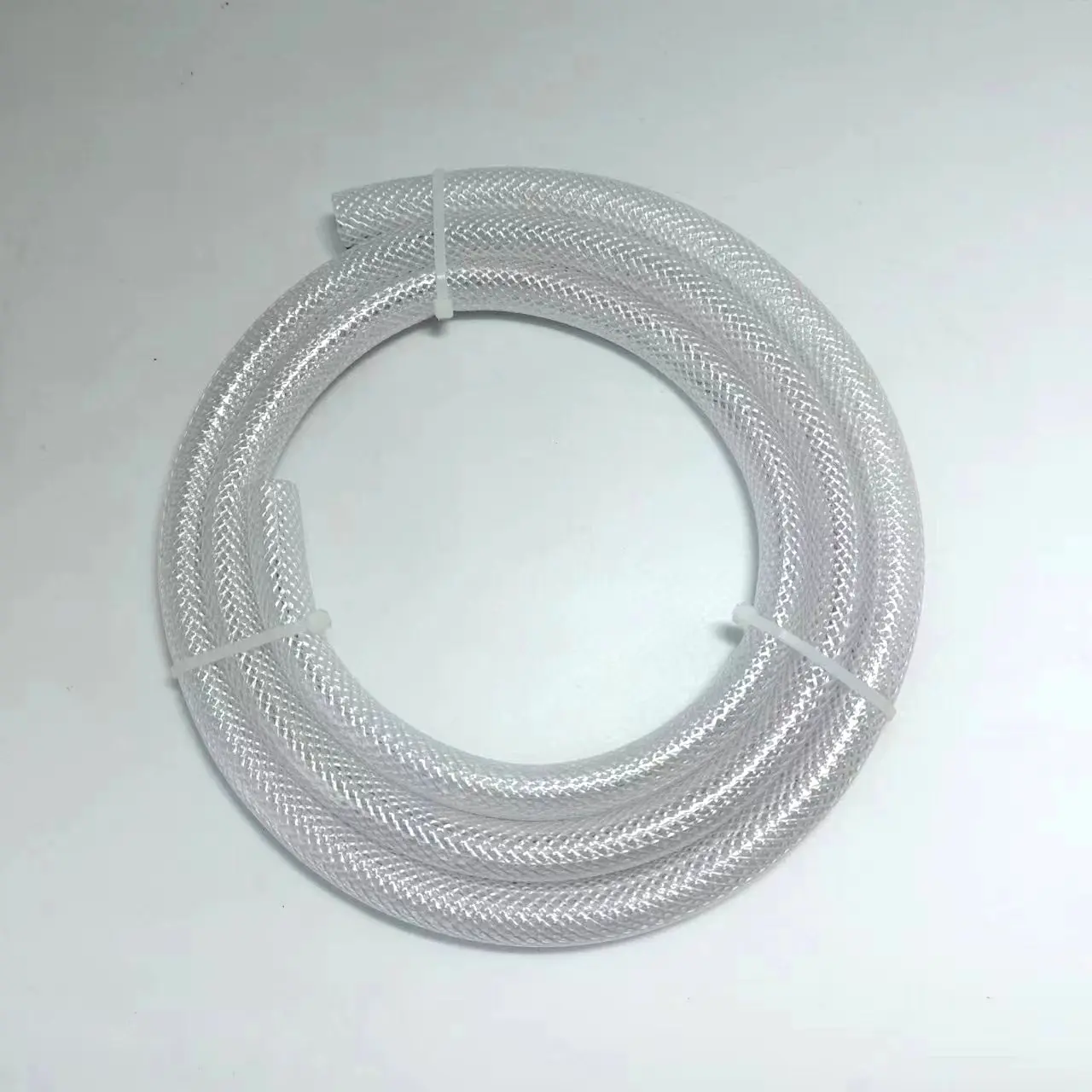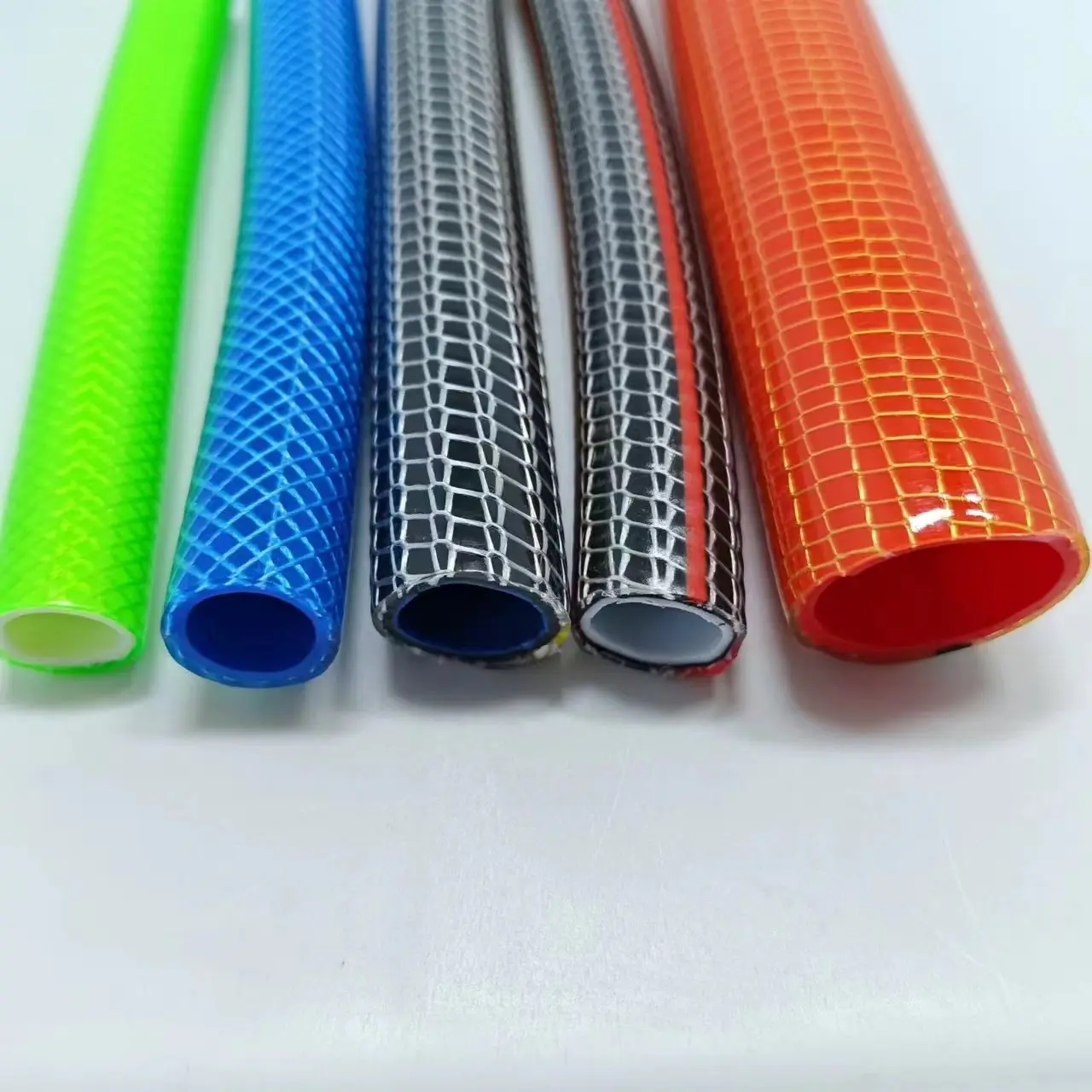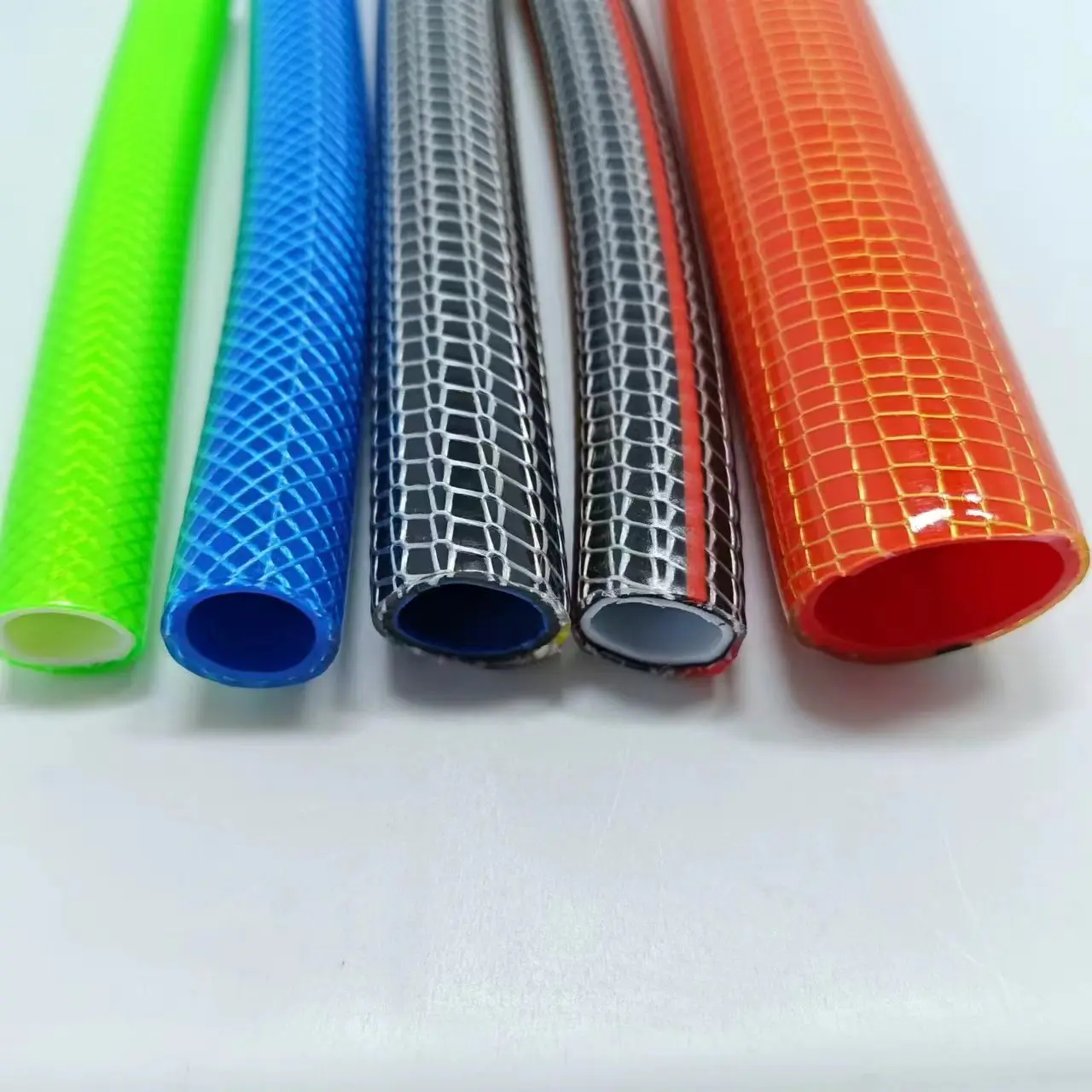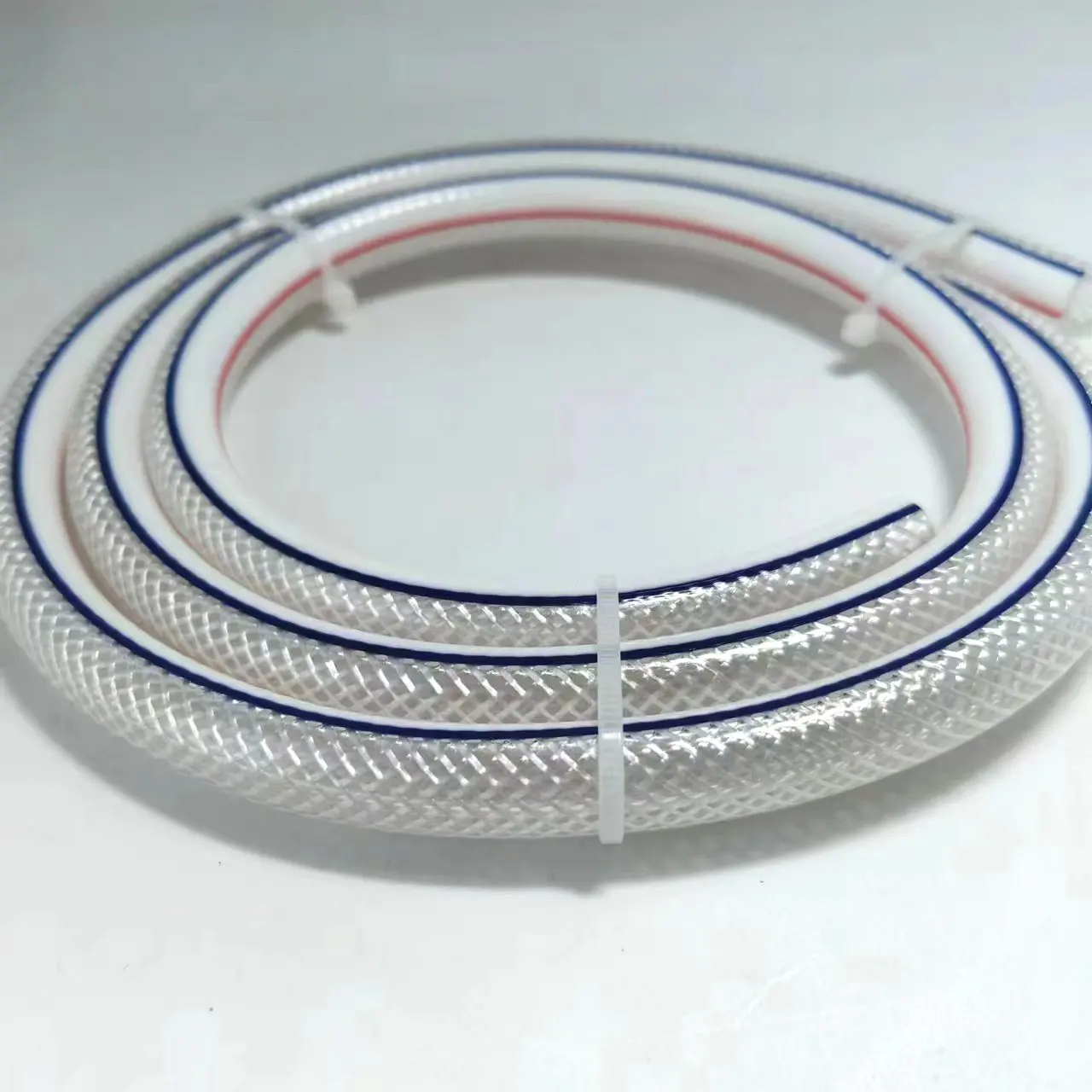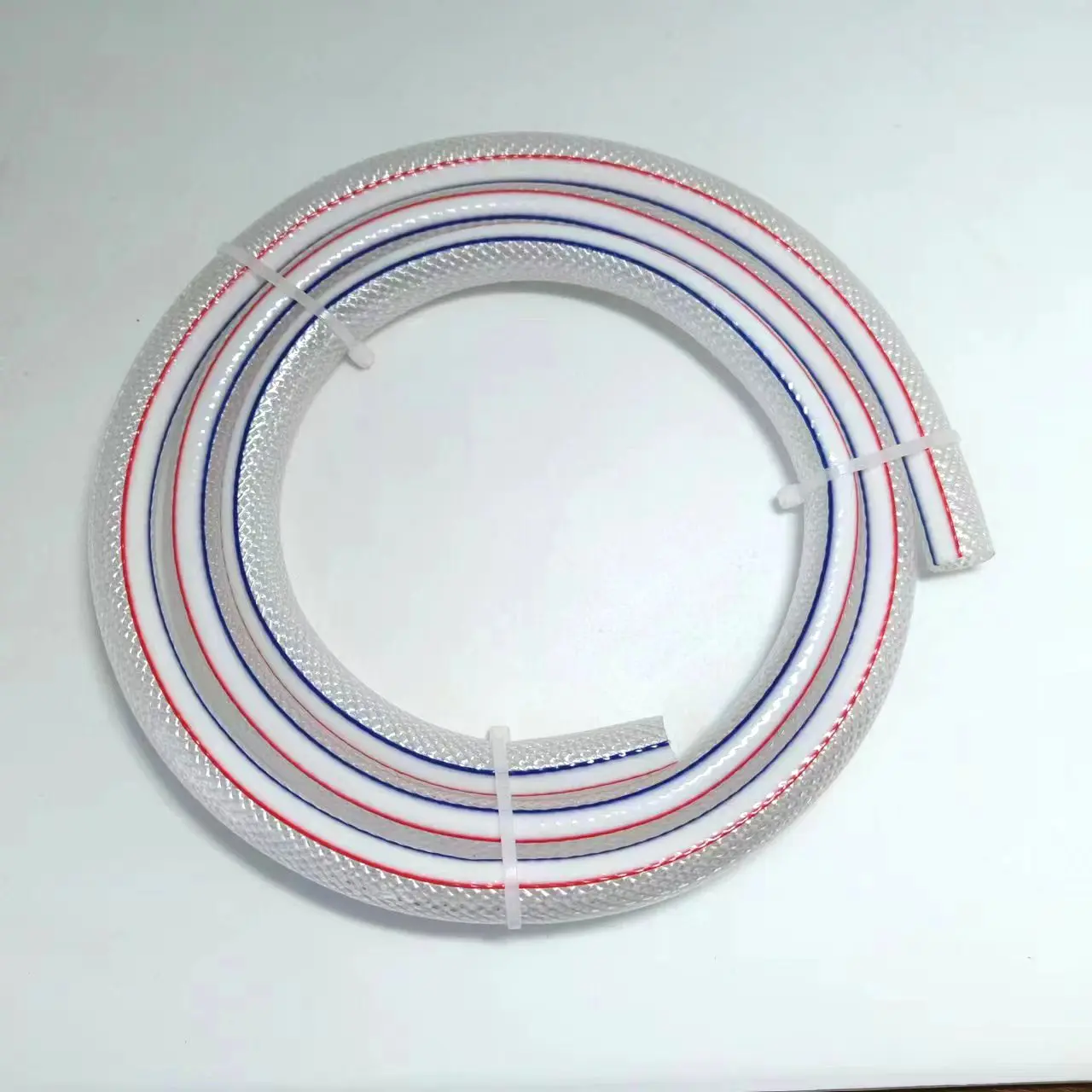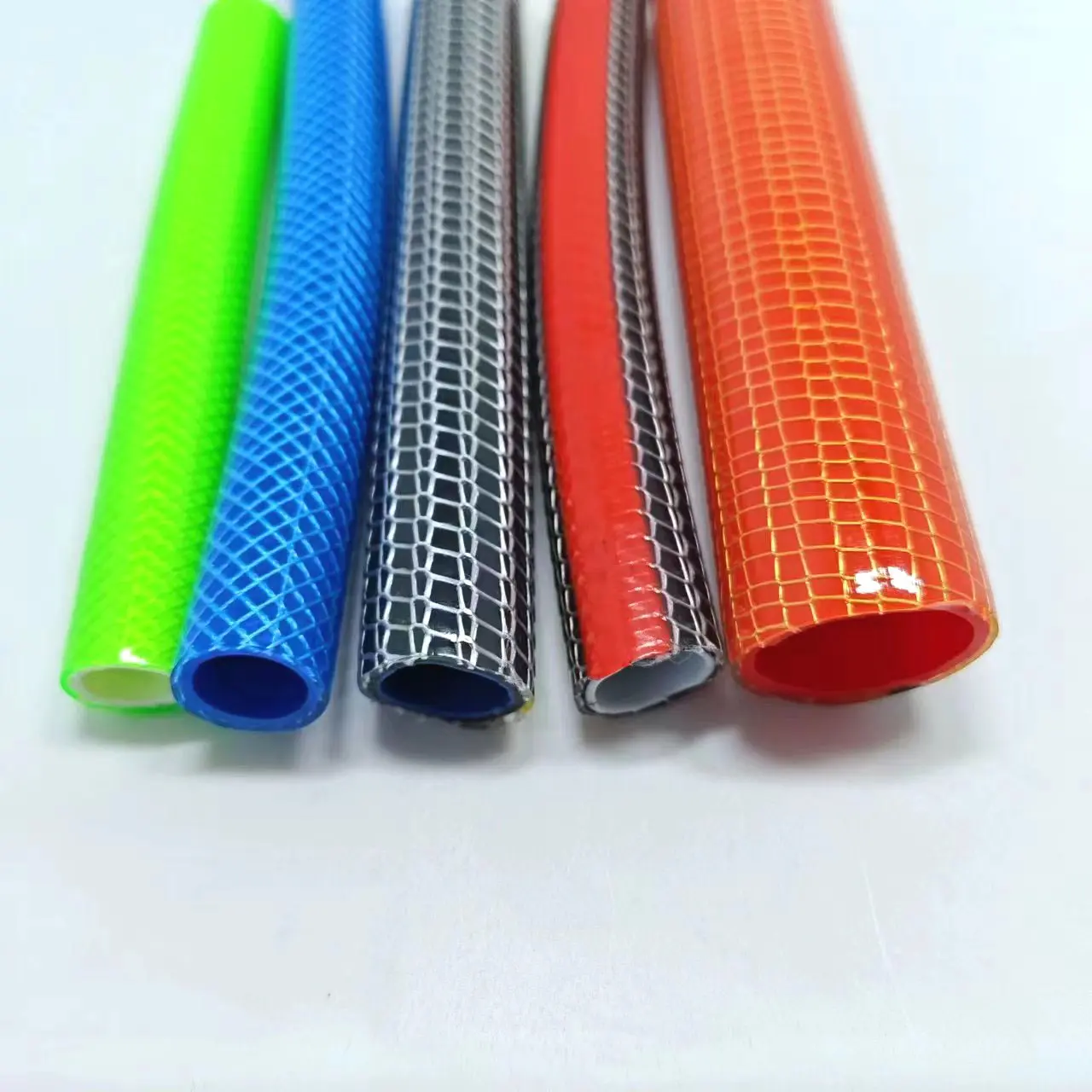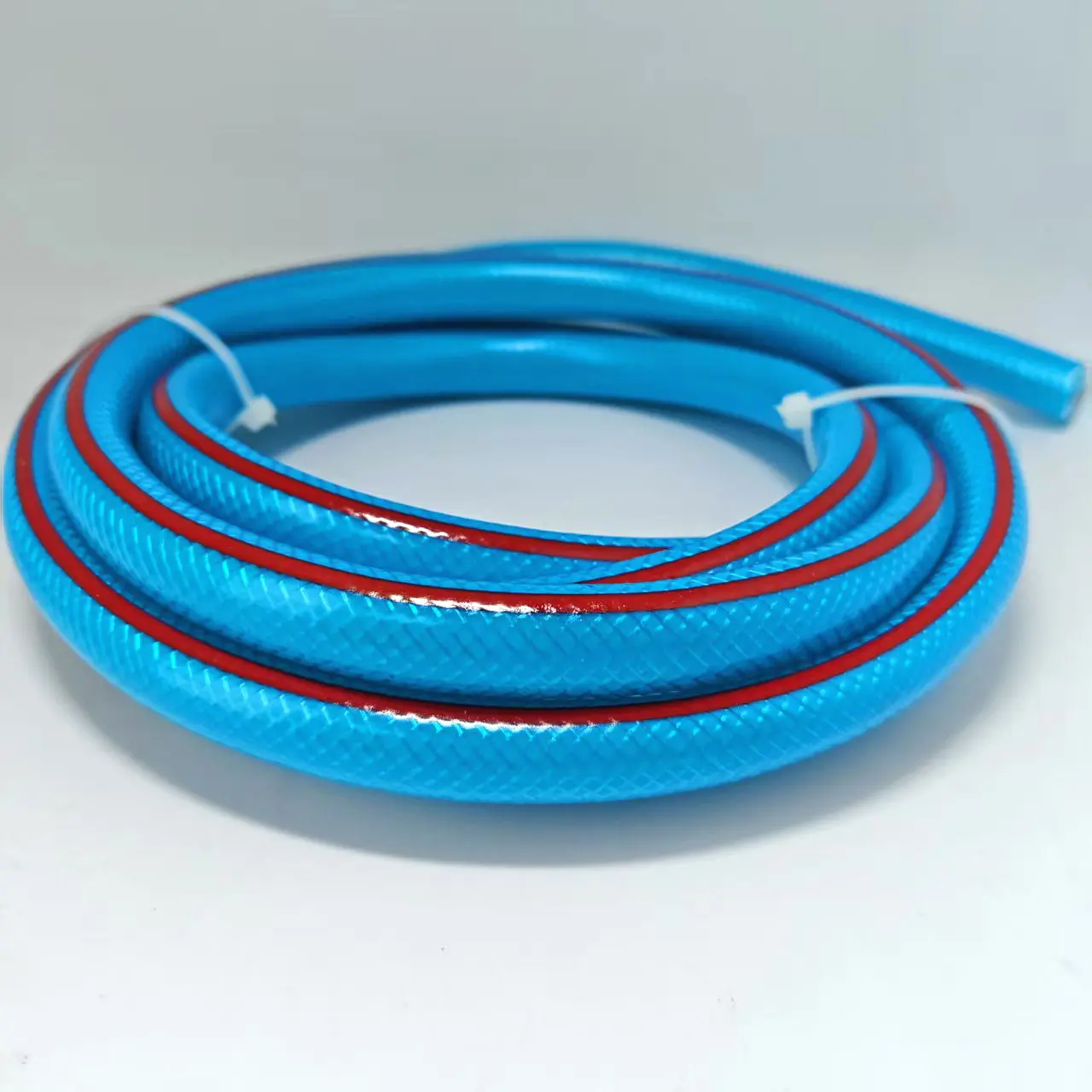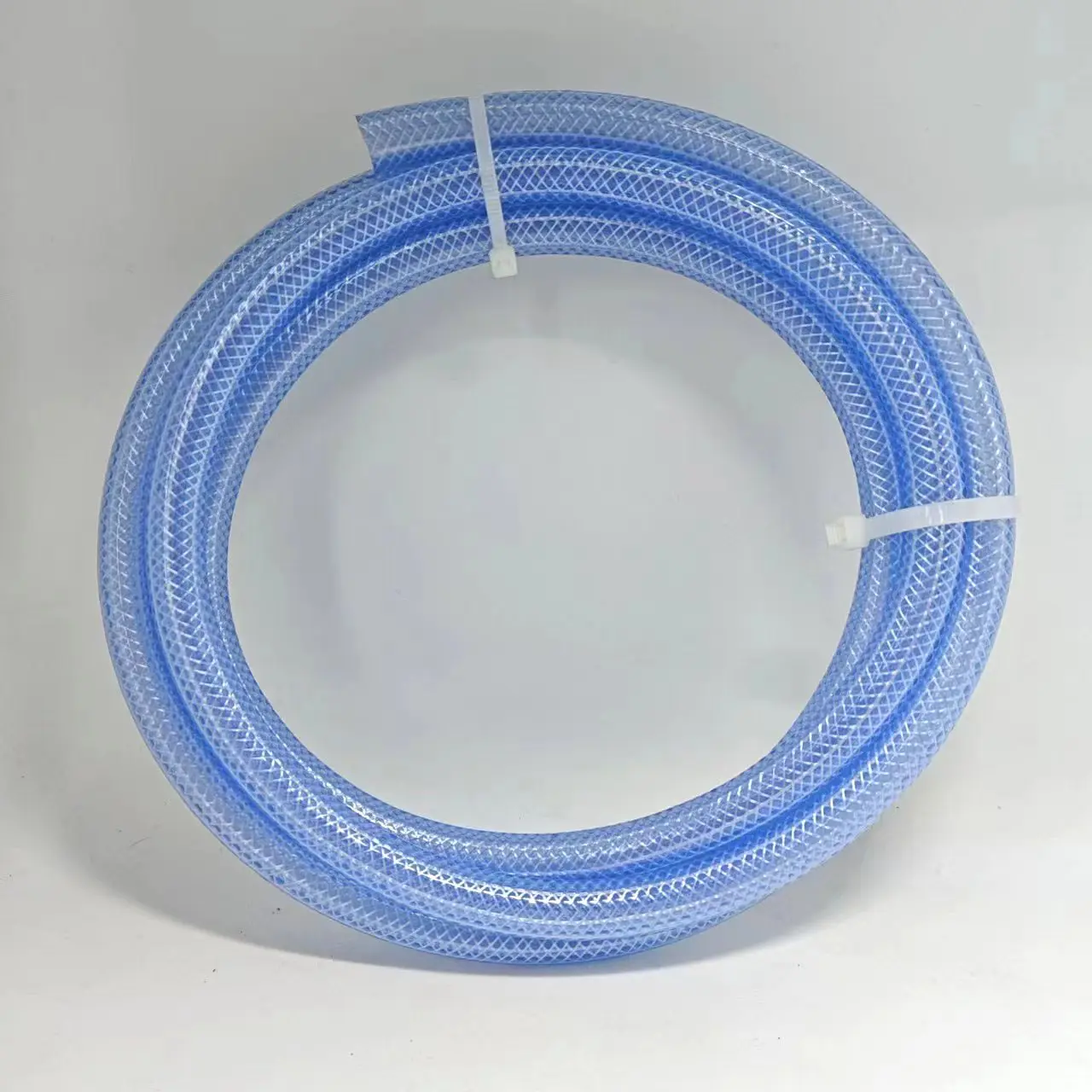Basic Overview
PVC Fiber Reinforced Hose is a type of flexible hose made from polyvinyl chloride (PVC) material and reinforced with fiber layers. This hose is widely used in Malaysia across industrial, agricultural, and daily life applications due to its lightweight, flexibility, and moderate strength.
In Malaysia, PVC Fiber Reinforced Hose is primarily used for transporting water, air, and other non-corrosive liquids. Given the country's hot and humid climate, the weather-resistant properties of PVC make it an ideal choice, as it is less prone to rapid degradation from high temperatures or UV exposure. Additionally, Malaysia's manufacturing and agricultural sectors have a high demand for hoses, particularly in irrigation, drainage, and low-pressure transportation systems, where this type of hose is commonly employed.
Compared to other types of hoses, PVC Fiber Reinforced Hose offers the advantage of lower cost, ease of installation, and minimal maintenance. Small and medium-sized enterprises (SMEs) in Malaysia particularly favor this hose due to its cost-effectiveness, meeting basic needs without requiring significant investment.
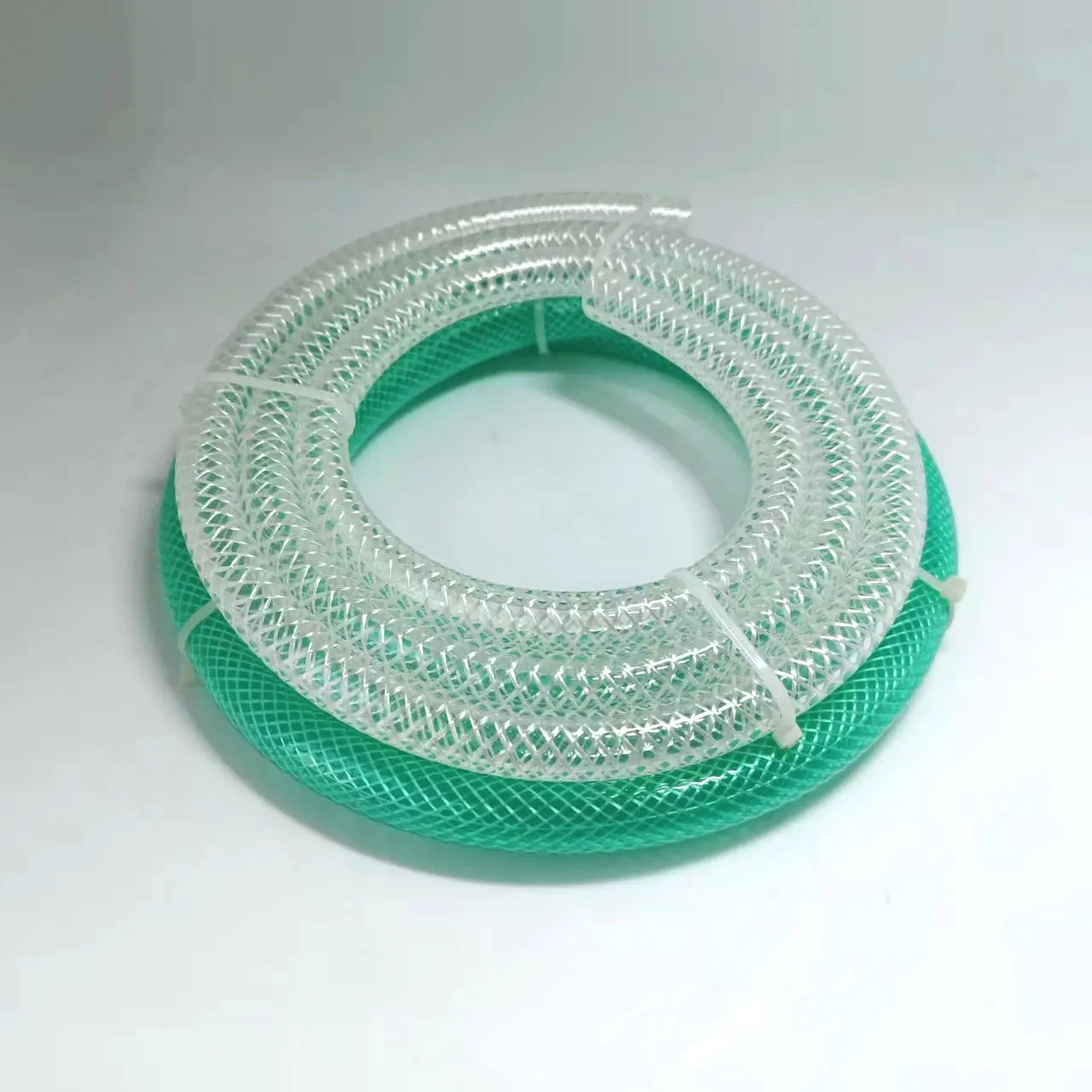
Main Application Areas
(1) Agricultural Irrigation
Malaysia’s agriculture, dominated by oil palm, rubber, and rice cultivation, relies heavily on irrigation systems. PVC Fiber Reinforced Hose is widely used in farmland irrigation, especially in small-scale farms and orchards, due to its lightweight and easy deployment.
(2) Construction Drainage
In the construction industry, particularly for residential and commercial buildings, this hose is often used for temporary or permanent drainage systems. Its flexibility allows it to adapt to various installation environments, such as underground or rooftop drainage.
(3) Industrial Ventilation and Pneumatic Conveyance
Factories and workshops frequently use PVC Fiber Reinforced Hose for ventilation systems and low-pressure pneumatic conveyance. Examples include dust collection in woodworking and air circulation in food processing plants.
(4) Household and Commercial Use
Many Malaysian households use this hose for daily activities such as garden watering and car washing. Commercial establishments like car washes and swimming pools also utilize it for water circulation and cleaning purposes.
Climate Adaptability Analysis
Malaysia has a tropical rainforest climate characterized by year-round high temperatures, heavy rainfall, and high humidity. The performance of PVC Fiber Reinforced Hose in this environment includes:
Heat Resistance: With average temperatures ranging between 25°C and 35°C, PVC hoses remain flexible and are less prone to hardening or cracking.
UV Resistance: Although prolonged sun exposure may cause fading, the fiber reinforcement provides some UV protection, extending the hose’s lifespan.
Mold and Moisture Resistance: The high humidity can promote mold growth, but PVC material is inherently water-resistant, reducing the risk of mold or rot.
However, extreme weather conditions, such as heavy rain or prolonged sun exposure, can still lead to aging. Therefore, it is recommended to take protective measures, such as covering the hose or storing it in a shaded area when used outdoors.
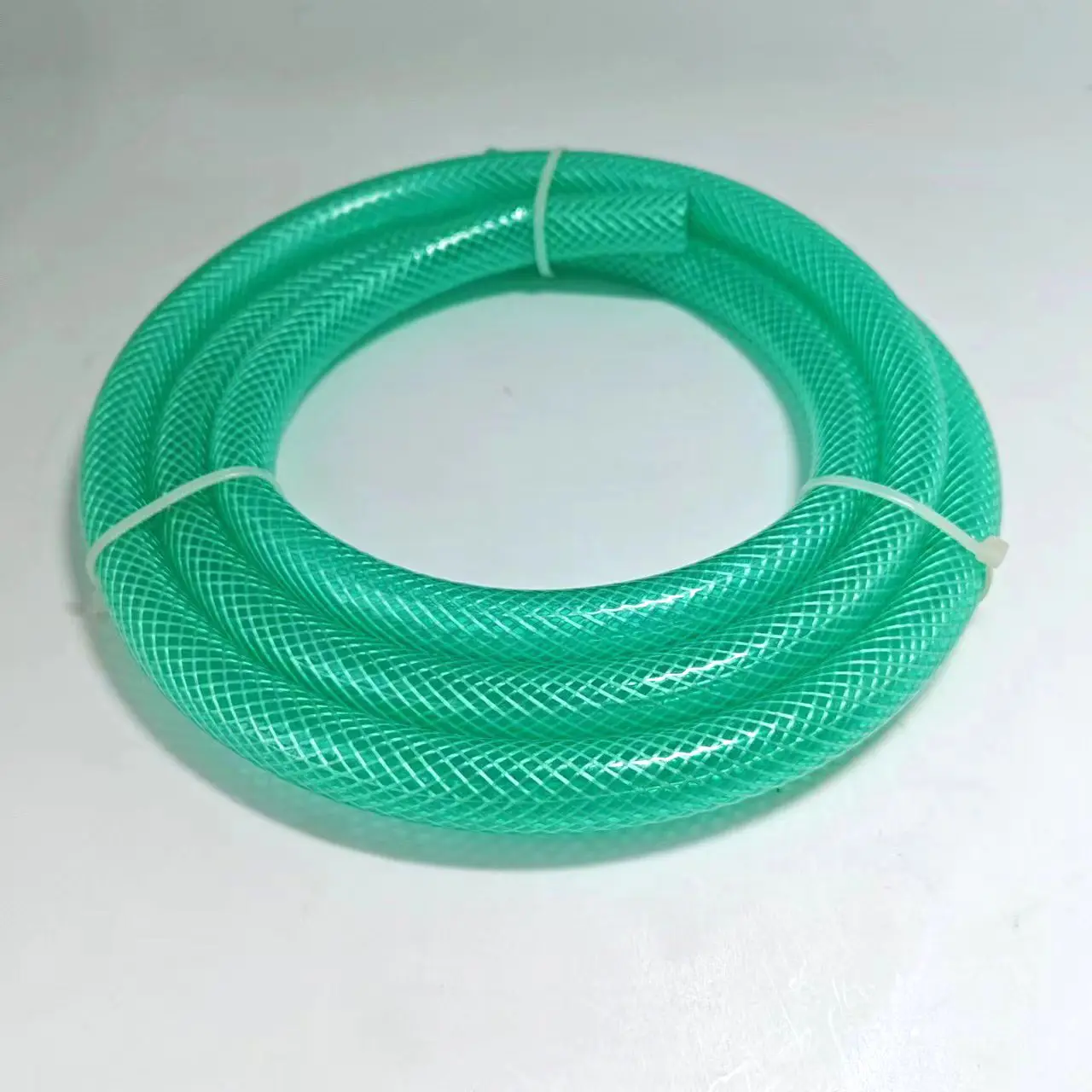
Market Supply and Production
The Malaysian market for PVC Fiber Reinforced Hose consists of both locally manufactured and imported products. Key characteristics include:
| Category | Local Production | Imported Products |
|---|---|---|
| Price | Lower, suitable for budget-conscious users | Higher, often with more consistent quality |
| Supply Stability | More affected by raw material fluctuations | Dependent on international logistics, potential delays |
| Common Sizes | Mostly small to medium diameters (1/2" to 2") | Wider range, including specialized sizes |
Local manufacturers are mainly concentrated in industrial areas such as Johor, Penang, and Selangor, with some companies exporting to neighboring countries. Imported products primarily come from China, Thailand, and South Korea, catering to higher-end market demands.
Installation and Maintenance Recommendations
Avoid Excessive Bending: While the hose is flexible, prolonged sharp bends can damage the fiber layer, reducing strength.
Regular Inspection: High temperatures and humidity may accelerate aging, so checking for cracks or leaks every few months is advisable.
Cleaning and Storage: After use, drain any remaining liquid to prevent bacterial growth. Store the hose coiled rather than folded to avoid pressure damage.
For agricultural users, it is recommended to clean and store the hose in a shaded area after the irrigation season to minimize UV damage.
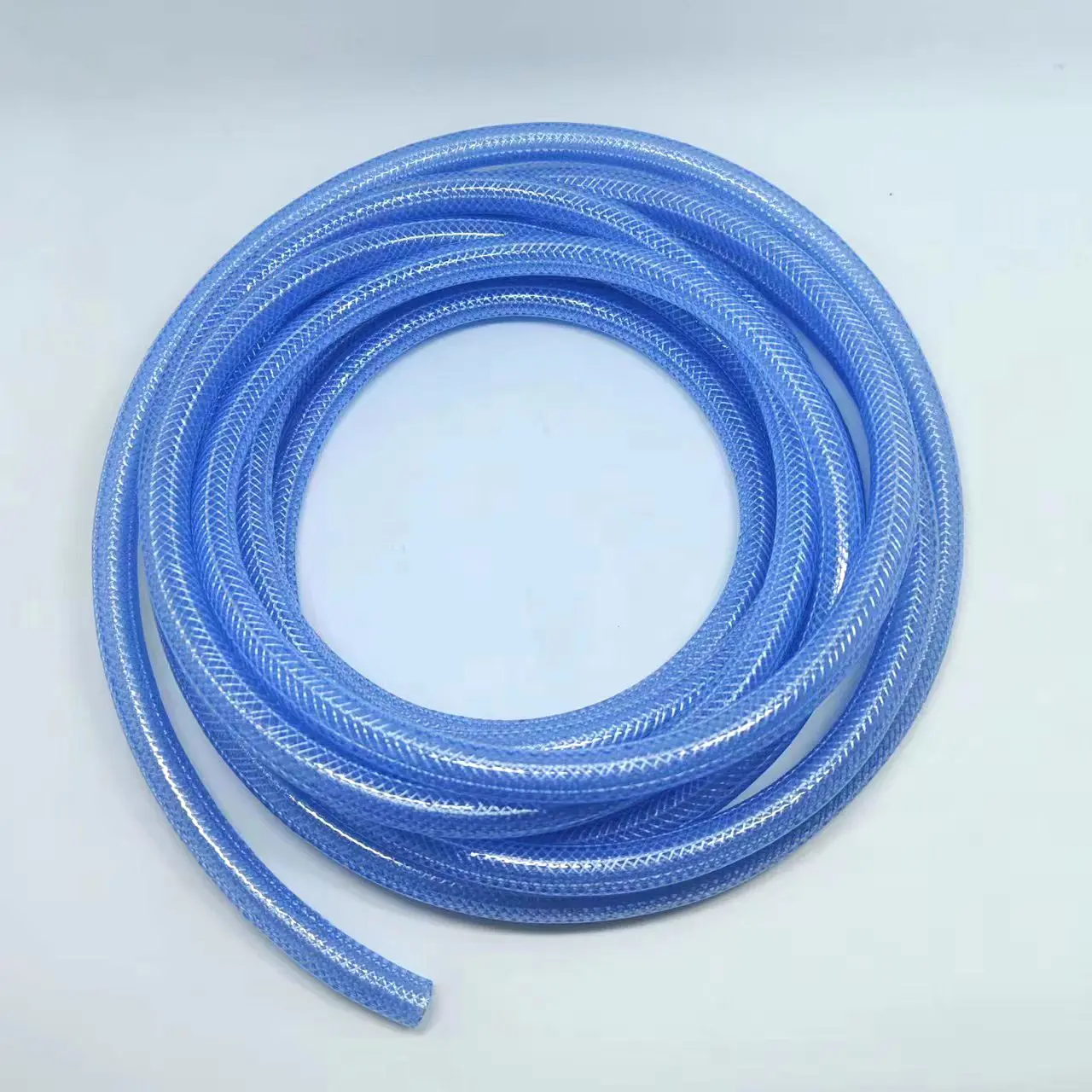
Comparison with Other Hoses
Rubber Hose: More durable but heavier and more expensive, suitable for high-intensity applications like firefighting or heavy industry.
PE Hose: Better chemical resistance but lower pressure tolerance, making it unsuitable for high-pressure environments.
PVC Fiber Reinforced Hose: Offers the best balance of cost and performance for most low-pressure applications like irrigation, drainage, and ventilation.
For Malaysian users who do not require extreme pressure or chemical resistance, PVC Fiber Reinforced Hose is generally the most economical and practical choice.
Common Issues and Solutions
Users in Malaysia may encounter the following problems with PVC Fiber Reinforced Hose:
Leaky Fittings: Usually caused by improper installation or worn seals; replacing fittings or using waterproof tape can help.
Deformation: Prolonged sun exposure may cause softening and deformation; relocating to a shaded area or using a protective cover is recommended.
Exposed Fiber Layer: If the outer PVC layer wears out, exposing the fibers, the hose should be replaced to maintain strength.
Overall, PVC Fiber Reinforced Hose is widely applicable in Malaysia. With proper selection and usage, it performs effectively in various environments.
